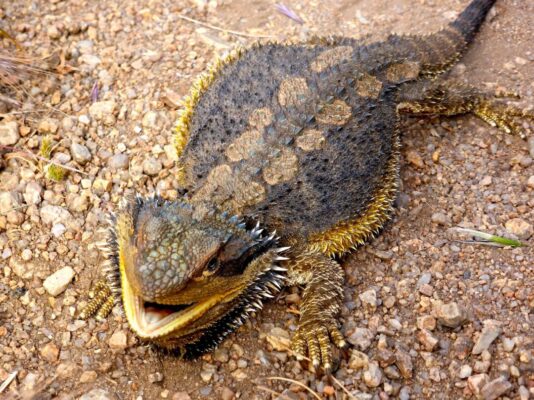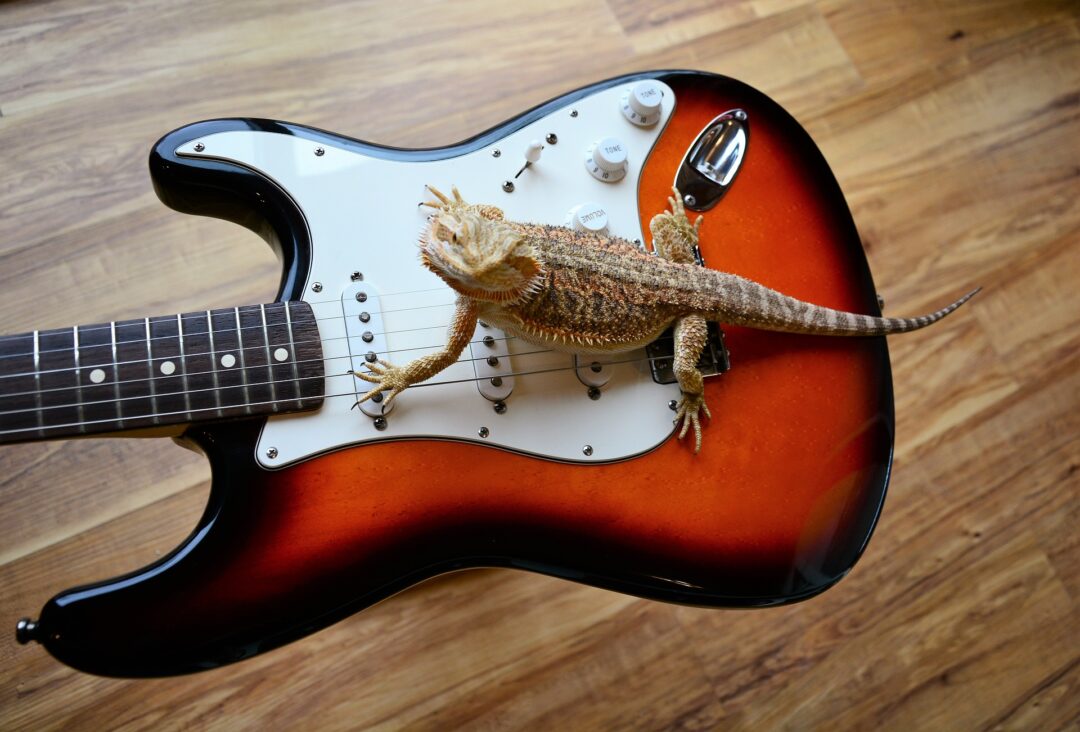Bearded dragons are popular pets for their unique appearance and friendly demeanor.
These reptiles are relatively easy to care for and make great companions for people of all ages.
However, as a bearded dragon owner, you may notice your pet running around like crazy sometimes, which can be concerning.
In this article, we will explore the reasons why bearded dragons may exhibit this behavior and what you can do to ensure their well-being.
Why is My Bearded Dragon Running Around Like Crazy?
There can be several reasons why a bearded dragon may run around like crazy, some of which may be related to their natural behavior, while others may indicate a health problem or environmental issue.
Here are a few possibilities:
Bearded Dragons are Active Creatures
One reason why your bearded dragon may be running around like crazy is that they are active creatures by nature.
Bearded dragons are diurnal reptiles, meaning they are most active during the day.
This activity can include running around their enclosure, exploring their surroundings, and even chasing their own tail.
In most cases, this behavior is nothing to worry about and is just a natural expression of your pet’s energy levels.
Bearded Dragons Need Exercise
Another reason your bearded dragon may be running around like crazy is that they need exercise.
Like humans, bearded dragons require physical activity to stay healthy and happy.
If your pet is not getting enough exercise, it may become restless and start running around its enclosure.
To ensure that your bearded dragon is getting enough exercise, you should provide them with a large enclosure that allows them to move around freely and plenty of climbing structures and hiding spots.
Bearded Dragons May be Stressed
Bearded dragons are sensitive creatures and may become stressed if they are not provided with a suitable environment or if their needs are not met.
When a bearded dragon is stressed, it may exhibit various behaviors, including running around like crazy.
Bearded dragon stress marks include hiding, loss of appetite, and lethargy.
To reduce stress in your bearded dragon, ensure that its enclosure is the right size, that they have access to proper lighting and heating, and that its diet is balanced and nutritious.
Bearded Dragons May be Exhibiting Breeding Behavior
If you have a male and female bearded dragon living together, you may notice that the male runs around the enclosure and exhibits other unusual behaviors.
It is because male bearded dragons often exhibit breeding behavior when housed with a female.
Breeding behavior can include head-bobbing, arm-waving, and even running around the enclosure.
If you do not intend to breed your bearded dragons, keeping them in separate enclosures is best to prevent any potential aggression or stress.
Bearded Dragons May be Sick
In some cases, running around like crazy may be a sign that your bearded dragon is sick or experiencing discomfort.
If your pet is exhibiting other signs of illness, such as a lack of appetite, lethargy, or abnormal bowel movements, it is important to seek veterinary care immediately.
Some common illnesses that can cause behavioral changes in bearded dragons include metabolic bone disease, respiratory infections, and parasites.
How To Make My Bearded Dragon Calm Down?

Here are some tips to help calm down a bearded dragon:
Provide a Comfortable Environment
Bearded dragons need a comfortable and secure environment that mimics their natural habitat.
Ensure your bearded dragon’s enclosure is one of the best bearded dragon enclosures – spacious, clean, and well-maintained. It should include a basking spot equipped with a heat lamp, a cooler area, hiding spots, and ample climbing opportunities.
Reduce Stress Factors
Avoid exposing your bearded dragon to stressful situations or loud noises. Provide a quiet and peaceful environment for them to relax in.
Handle them Gently
If you need to handle your bearded dragon, do so gently and calmly. Bearded dragons can become scared or stressed if they are handled roughly or abruptly.
Offer Enrichment
Bearded dragons are intelligent and active animals that need mental and physical stimulation.
Offer them toys, climbing structures, and other forms of enrichment to keep them stimulated and engaged.
Maintain a Regular Feeding Schedule
Bearded dragons can become agitated when hungry. Make sure to feed them regularly and provide a balanced diet.
If your bearded dragon’s behavior continues to be a concern, it is important to consult with a veterinarian specializing in reptile health.
They can help determine if there is an underlying health issue or provide additional guidance on keeping your bearded dragon calm and healthy.
Conclusion
Bearded dragons may run around like crazy for various reasons, but in most cases, this behavior is harmless and simply a natural expression of your pet’s energy levels. However, if you are concerned about your pet’s behavior, it is always best to seek veterinary advice to ensure that your bearded dragon is healthy and happy.
By providing your pet with a suitable environment, proper nutrition, and plenty of exercise and stimulation, you can help ensure that they live a long and healthy life.
Related Article:
How To Tell The Gender Of A Bearded Dragon?

